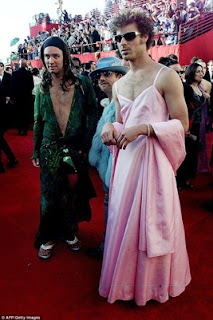Nintendo Switch is a game console developed by Nintendo and released in 2017. As a successor of Nintendo WiiU, it develops the concept of combining mobile and stationary gaming. For me, this console is a phenomenon, because it proves that people don’t want only bigger and better looking games, but they want games which can give them joy. And Nintendo Switch can give a lot of joy!
Source: https://www.nintendo.com/content/dam/noa/en_US/hardware/switch/nintendo-switch-new-package/gallery/bundle_color_tabletop%20(2).jpg
Nintendo Switch is a hybrid console. Simply speaking, main hardware is a 6.2-inch tablet. In the box, we can also find a special dock and two controllers named Joy-Cons. The main concept of Switch is a possibility to change a style of gaming in a moment. For example, you play during travel in the portable mode which is possible because you can slip your joy-cons in the sides of the tablet. Then, after coming home if you want to continue playing on a bigger screen like TV, you can just pull out joy-cons, connect the tablet to a special dock and that’s it. A few seconds and you switch from mobile to stationary gaming. If a game has a local multiplayer mode, you can just give one of the joy-cons to your friend and just play together; you receive a game console with two controllers which you can have whatever you want to. Isn’t that beautiful?
Source: https://d2z1w4aiblvrwu.cloudfront.net/ad/wi4Q/nintendo-switch-snow-day-large-8.jpg
After its premiere, Nintendo Switch was compared to the other eight generation consoles, i.e Xbox One and Playstation 4. When you compare specifications, Switch is just a poor rival with no power to deal with other game consoles. To be honest, the console is closer to phones and tablets than to current consoles. But even the best game console will fail without games. And in this field Switch is a definite favorite. Mario games, The Legend of Zelda and many, many indie games make this console the best option for everyone. Moreover, Switch has many more games with a local multiplayer than other modern game consoles. I hate the fact that I can't find any game other than FIFA or Call of Duty that I could play with another person in the same room and Switch is the best solution for parties or meetings.
WiiU - the predecessor of the Nintendo Switch
Source: https://upload.wikimedia.org/wikipedia/commons/thumb/4/4a/Wii_U_Console_and_Gamepad.png/1920px-Wii_U_Console_and_Gamepad.png
To sum up, Nintendo Switch is a good example proving that you don’t have to be stronger than your rivals to be better. Sometimes you just need to be different and find a different solution to achieve success. Poor hardware with atypical construction and a large library of games for everyone can beat better graphics and larger open worlds. At this time I don’t have my own Switch, but I think that it’s just a matter of time.
- Do you have Nintendo Switch? If the answer is “yes”, how do you rate it?
- Do you think that graphics is the most important feature in games? Or do you value other features?
- What would your perfect game console look like?
Source:
https://pl.wikipedia.org/wiki/Nintendo_Switch
https://www.nintendo.com/




